Kidney Cancer - Traditional Chinese Medicine Treatment
Information provided/updated by:
Professor Pang Yi,
Clinical Professor of Chinese Medicine,
School of Chinese Medicine,
Hong Kong Baptist University
Introduction:
In this article, Professor Pang Yi introduces how traditional Chinese medicine treats kidney cancer.
A. Overview (including organs, systems, and the use and differences of terms in traditional Chinese medicine and Western medicine)
B. Cause/Symptoms/Diagnosis
C. Treatment
A. Overview (including organs, systems, and the use and differences of terms in traditional Chinese medicine and Western medicine)
Kidney cancer is a malignant tumor originating from the renal urinary tubular epithelial system. The incidence rate is the second highest among urinary system tumors, second only to bladder tumors. It mainly occurs in middle-aged and elderly people, with the incidence rate in men about twice that of women. The incidence rate has been on the rise in recent years.
B. Cause/Symptoms/Diagnosis
The classic "triad" of kidney cancer - hematuria, abdominal pain, abdominal mass, only appears in 6%-7% of patients.
According to its symptoms, kidney cancer falls under the categories of "hematuria", "kidney accumulation", "lumbago, aggregation-accumulation" in traditional Chinese medicine. Kidney qi deficiency, irregular diet, emotional disorders, and external dampness are the main causes of kidney cancer.
The disease location of kidney cancer is in the kidney, and the dysfunction of the liver, spleen, and kidney is an important mechanism of kidney cancer. It is based on deficiency of righteousness, and dampness, heat, toxin, and stasis are the marks of evil reality.
Western medicine's understanding of the cause and mechanism of this disease is still unclear, besides genetic factors, lifestyle also plays a very important role in the occurrence and development of kidney cancer. Smoking, obesity, and hypertension are the three recognized major risk factors, other risk factors include aromatic hydrocarbons, radiation, aflatoxin, viruses. Long-term use of painkillers or drug abuse, frequent contact with trichloroethylene, cadmium metal, asbestos, petroleum and other chemicals can also increase the risk of kidney cancer. Its pathogenesis is not yet fully understood, but it is found to be closely related to hypoxia, inflammation, changes in the endocrine environment, and inactivation of tumor suppressor genes.
Although the incidence rate of kidney cancer is the second highest among urinary system tumors, the mortality rate is the highest. Kidney cancer has no symptoms in the early stage, and about 60% of patients have already had metastasis when symptoms appear. The three-year survival rate for those who have not received treatment is less than 5%, and the prognosis is poor.
C. Treatment
In Western medicine treatment plans, radical surgery is the first choice for early non-metastatic renal cell carcinoma, but there is still the possibility of recurrence and metastasis after surgery. For advanced metastatic renal cell carcinoma, targeted therapy and immunotherapy are often combined with surgical resection to improve efficacy. Renal cell carcinoma is not sensitive to radiotherapy, chemotherapy, and hormone therapy. However, radiotherapy can alleviate the pain caused by the tumor.
Traditional Chinese medicine treatment can help inhibit tumors, prevent metastasis, improve quality of life, and alleviate the adverse reactions of Western medicine treatment.
Staged syndrome differentiation treatment
The main principle is to reinforce the healthy qi and eliminate the pathogenic factors, and to support the healthy qi throughout. In the early stage, when the healthy qi is sufficient and the tumor toxin is mild, the treatment is mainly to eliminate the pathogenic factors.
In the middle stage, when the pathogenic toxin is increasing and the healthy qi is becoming deficient, both eliminating the pathogenic factors and reinforcing the healthy qi are considered.
In the late stage, when the qi and blood are weak, the pathogenic qi is obstructed, and the tumor toxin is spreading, both reinforcing the healthy qi and eliminating the pathogenic factors are important. In addition, the appropriate use of anti-tumor Chinese medicine on the basis of syndrome differentiation treatment can improve clinical efficacy.
Reduce the side effects of Western medicine treatment
Combining traditional Chinese and Western medicine treatment, immunotherapy and targeted therapy are prone to adverse reactions. If the patient cannot tolerate them, it will affect the efficacy. The rational use of traditional Chinese medicine can alleviate or relieve the side effects of immunotherapy and targeted drugs, enhance the efficacy, and can also delay or reverse the resistance of targeted drugs. The use of traditional Chinese medicine after renal cell carcinoma surgery can improve the patient's renal function, promote the body's recovery, and improve the patient's quality of life.
Patients with renal cell carcinoma need to undergo regular check-ups after completing treatment to monitor whether the cancer has recurred. To reduce the risk of recurrence, patients with renal cell carcinoma must quit smoking and reduce exposure to harmful chemicals; avoid high-sodium, high-fat, and high-protein diets, and eat more fruits and vegetables; maintain appropriate weight and control high blood pressure.
(February 2022)




